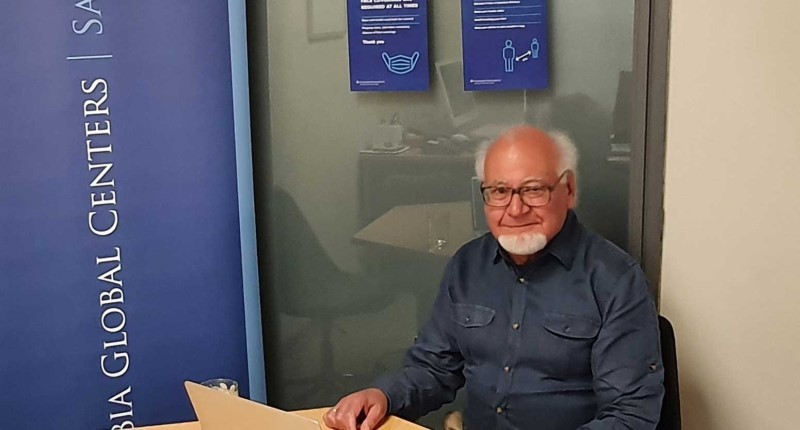In February, the Santiago Center received a visit from Boris Gasparov, Professor Emeritus of Slavic Studies.
Gasparov came to Chile of his own initiative, together with his wife Catherine Evtuhov, Professor of History and a specialist in Russian history, who has a leave of absence this semester from Columbia.
“Paradoxically, getting out of New York is good for our work, for our writing, to be in an abstract environment and away from our daily obligations. We have all the materials in our computers, and this is the perfect environment for us,” he said. “Sometimes you need to stay within reach of the library and be in contact with your colleagues, but there are also times when you just need to sit with your computer, look at your materials and put them together to write something.”
While in Chile, Gasparov is working on a project that has to do with the beginning of the philosophy of Romanticism at the turn of the 19th century.
“I’m looking to demonstrate that the point of the Romantics was to show the collective, logical nature of human conscious. Not strictly through categories of reason, and not strictly subjectively, but through exchange and dialogue that can accommodate contradictions and discontinuity, which are inevitable when more than one mind is participating.”
He specifically came to the Santiago Center to work on a video presentation he was preparing, and “Catherine had been to Chile four years ago and worked with the Santiago Center, and had a very positive impression.”
Gasparov’s video will be shown as a keynote lecture to close an international conference in Estonia, in celebration of the centennial of birth of Yuri Lotman, the founder of the so-called “Tartu–Moscow school of semiotics.” Lotman is also the founder of an original concept of cultural history that has drawn wide international attention among scholars and others interested in cultural anthropology, literary theory, and socio-cultural studies.
Gasparov was Lotman’s younger colleague in Estonia, and he recognizes that his own works “have stemmed to a significant extent from the unique intellectual atmosphere of the ‘Tartu school’ in the 1960s and '70s.”
He was invited to deliver the lecture - entitled “Between the System and the Cognizing Subject: Lotman's Semiosphere and the Early Romantic Concept of Intersubjectivity” - in person, but he was unable to travel to Estonia.

